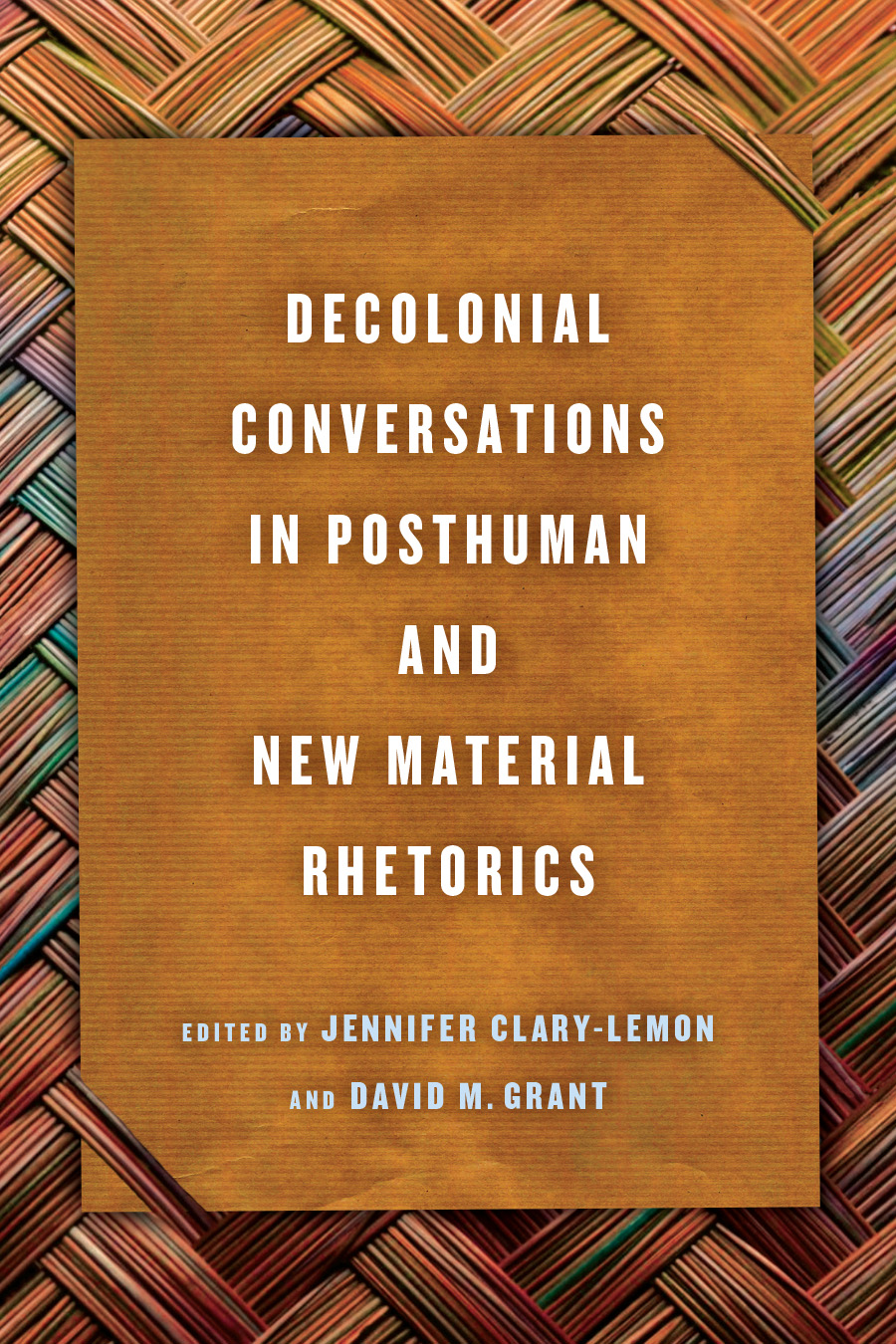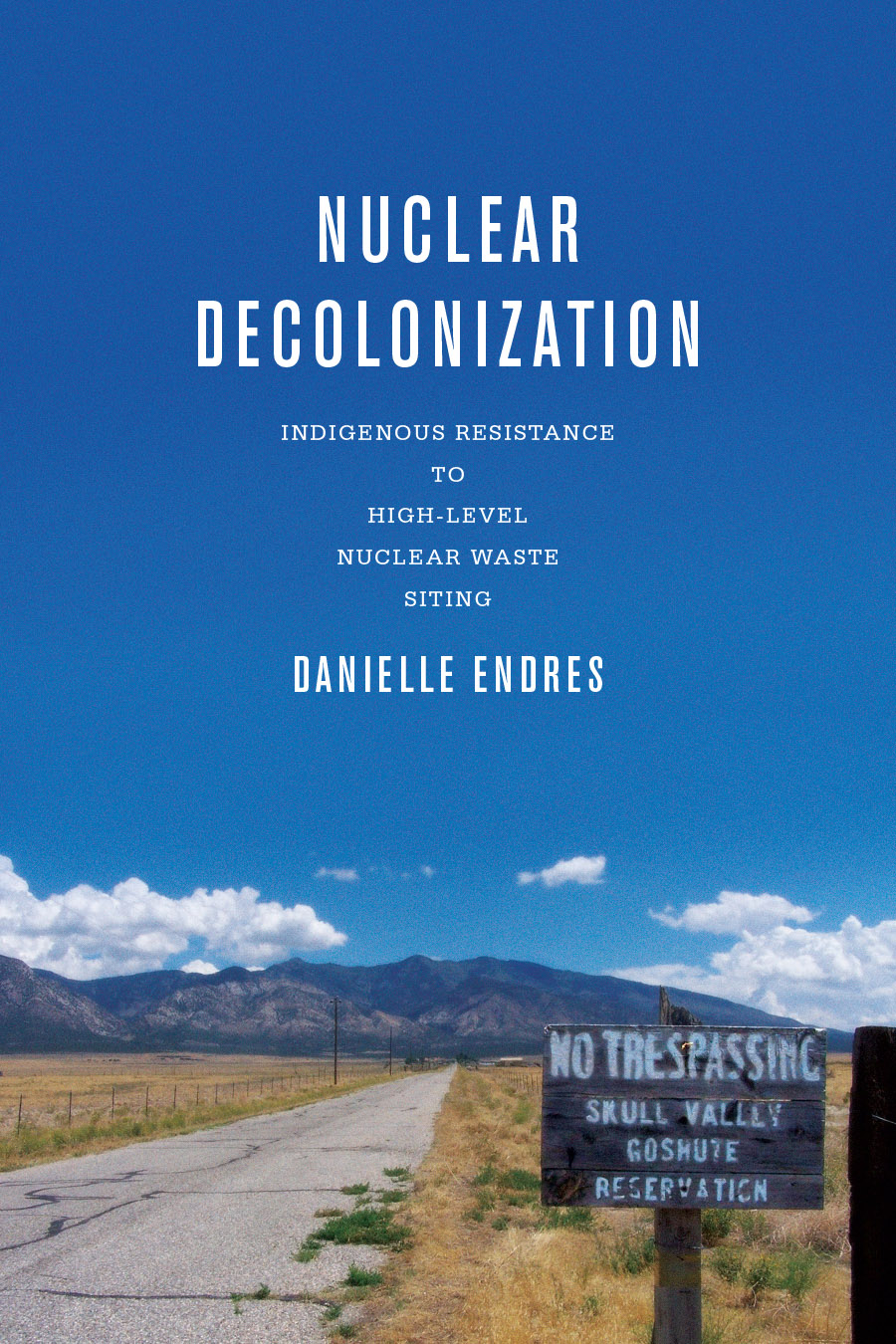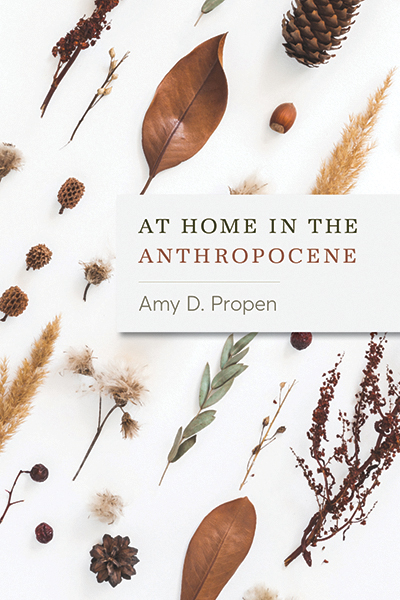Honorable Mention, 2025 Association for the Rhetoric of Science, Technology, and Medicine Book Award
Honorable Mention, 2024 NCA Public Address Division’s Marie Hochmuth Nichols Award
“Graduate students and early-career scholars invested in environmental justice and environmental communication will find [Nuclear Decolonization] an uplifting read … This is a refreshing book that likely will bring hope and (re)motivate many scholars, artists, practitioners, and teachers invested in nuclear studies, environmental communication, environmental studies, rhetorical studies, Indigenous studies, and more.” —Joanne C. Marras Tate, Environmental Communication
“A groundbreaking examination of the intersection between nuclear waste management, Indigenous rights, and environmental justice...Nuclear Decolonization is a well-researched and illuminating volume that deserves a wide readership of scholars within the communication, environmental justice, and social justice fields.” —Kate O. Butler, Quarterly Journal of Speech
“Scholars interested in engaging in Indigenous rhetorics and theories should look to Endres as a leader in respectful engagement with Indigenous concerns...Nuclear Decolonization is an engaging text that prioritizes, supports, and authentically represents Indigenous peoples as they practice sovereignty and activism to prevent the temporary storage of nuclear waste on their traditional homelands.” —Yavanna Brownlee, Rhetoric Review
“[Endres’s] work serves as an example for future cultural rhetorical research. Scholars of such fields as cultural rhetorics, second language writing, translingual writing, and others can build upon the conclusions Endres provides as well as rely on the methodologies and analyses in their own research. Such additions to the field of rhetoric and composition offer significant opportunities for diversifying our voices and the ideas we value and share.” —Justin G. Whitney, Constellations
“[Nuclear Decolonization]...contribute[s] in productive ways to vital ongoing conversations—in and beyond the classroom—about Indigenous studies research methods....Endres has written a careful, nuanced, and respectful accounting of the many ways that Western Shoshone, Southern Paiute, and Skull Valley Goshute peoples have grappled with having their lands targeted for nuclear colonialism.” —Traci Brynne Voyles, Native American and Indigenous Studies
While research demonstrates how Indigenous populations have been disproportionately affected by the global nuclear production complex, less attention has been given to tactics that have successfully resisted such projects. Danielle Endres’s Nuclear Decolonization shifts the conversation around nuclear colonialism in important ways, offering an account of how the Western Shoshone, Southern Paiute, and Skull Valley Goshute peoples and nations prevented two high-level nuclear waste sites from being built on their lands.
Using a decolonial approach, Endres highlights two sets of rhetorical tactics—Indigenous Lands rhetorics and national interest rhetorics—used to fight nuclear colonialism. The book reframes nuclear decolonization as fundamentally a struggle for the return of Indigenous lands while also revealing how Native activists selectively move between Indigenous nationhood and US citizenship in order to resist settler decision-making. Working at the intersection of Indigenous antinuclear advocacy, Indigenized environmental justice, and decolonization, Nuclear Decolonization centers Native activism and voices while amplifying the power and resilience of Indigenous peoples and nations.

Danielle Endres is Professor of Communication and Director of the Environmental Humanities Program at the University of Utah. She is the author of Participatory Critical Rhetoric: Theoretical and Methodological Foundations of Studying Rhetoric in Situ.
Contents
List of Illustrations
Preface
Acknowledgments
Introduction Indigenous Rhetorics and Nuclear Decolonization
Chapter 1 From Nuclear Colonization to Nuclear Decolonization
Chapter 2 The Indigenous Lands of Yucca Mountain and Skull Valley
Chapter 3 Indigenous Lands Rhetorics
Chapter 4 Indigenous National Interest Rhetorics
Conclusion Decolonization Tactics for Survivance
Bibliography
Index
Nuclear Decolonization reviewed in Environment: Science and Policy for Sustainable Development
“Endres’s book is a high-water mark of decolonial work in the field of rhetorical studies and critical-cultural studies in communication. It is a primer on the terms of decolonization, theories of decoloniality, and ways to study these concepts through responsible attention to Indigenous voices, providing inroads to unsettling Western perspectives and anchoring Indigenous scholarship.” —Jason Edward Black, coauthor of Mascot Nation: The Controversy over Native American Representations in Sports
“Based on years of encounters with communities and individuals, Nuclear Decolonization is an exemplar of both localized case studies and broader critiques of racism, nuclearism, and colonialism—all while demonstrating care and respect for subject matter, people, and culture.” —Stephen Depoe, coeditor of Breaking Boundaries: Innovative Practices in Environmental Communication and Public Participation
Related Titles:

Decolonial Conversations in Posthuman and New Material Rhetorics
Edited by Jennifer Clary-Lemon and David M. Grant



